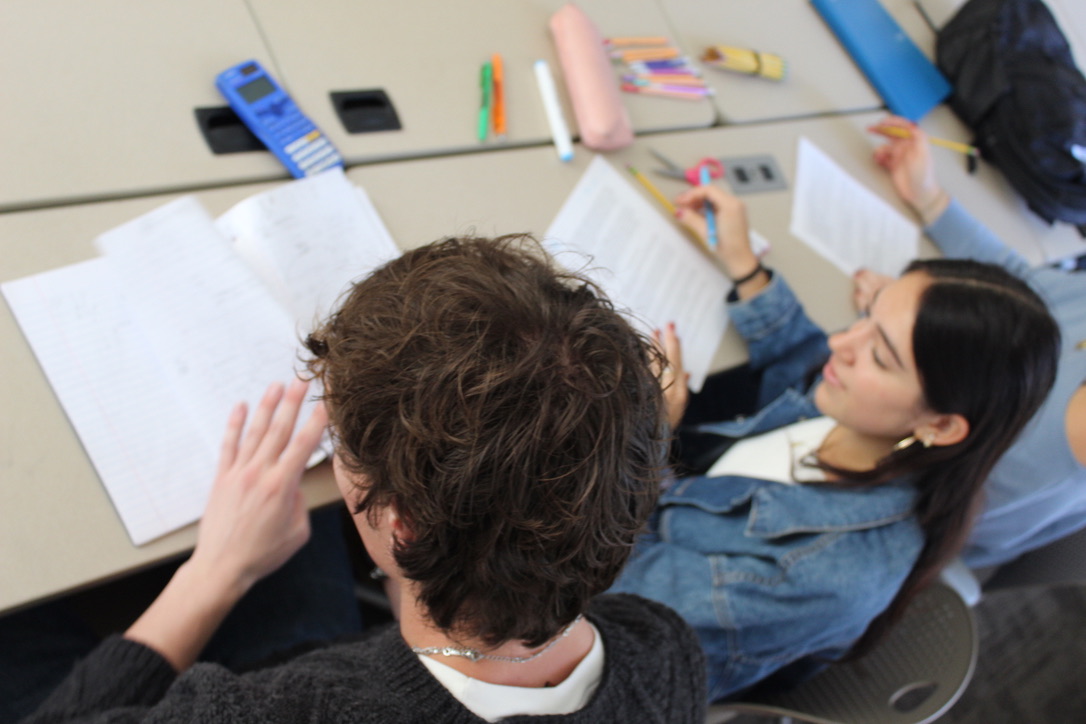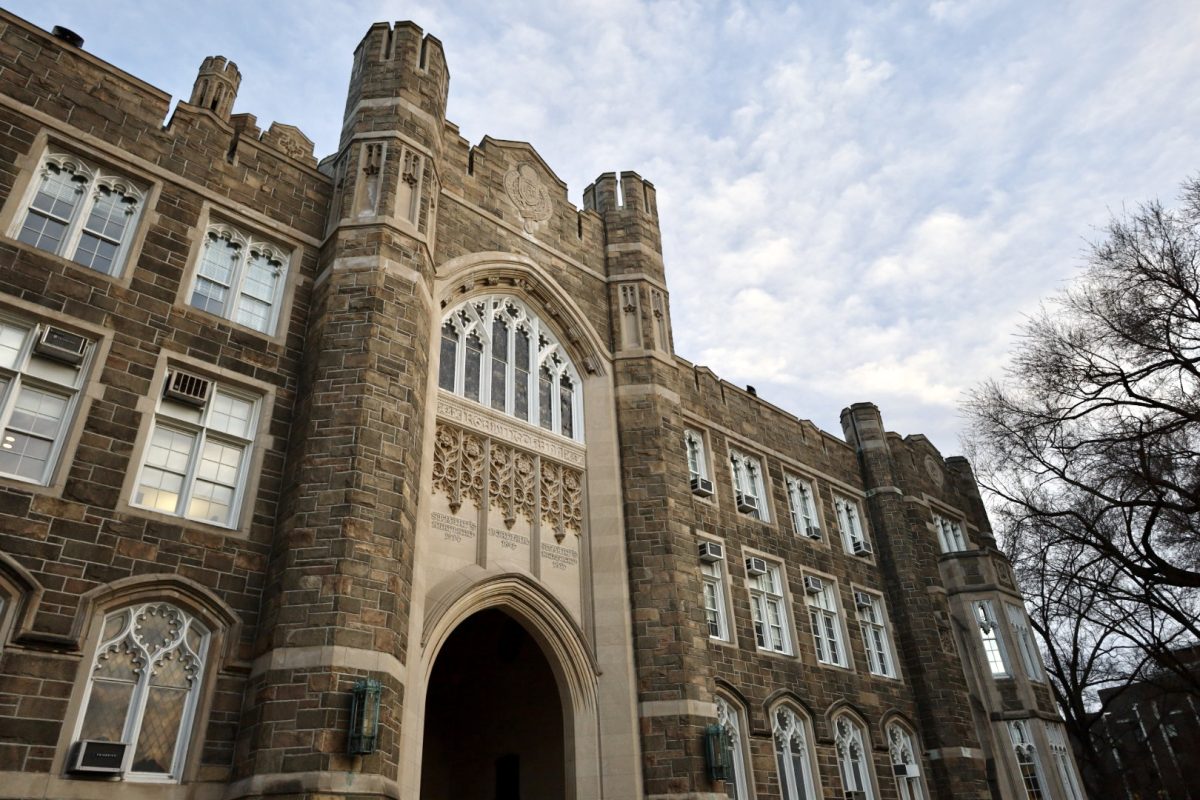Shorter days, lower temperatures and skyrocketing stress levels are all hallmarks signifying the arrival of midterm season. Even the school Wi-Fi gives out under all of the pressure these days. Entering the deep end of approaching due dates, how does one keep their head above the waters of bluebooks and Blackboard submission email notifications?
As if the sudden 20 degree temperature drop wasn’t enough to ruin the morning walk to Faculty Memorial Hall, knowing that you’re walking to an 8:30 a.m. exam on top of that makes the trek that much more daunting. Not only are the academic stressors inviting crashouts and breakdowns, but for many students, involvement in university clubs and grappling with balancing social and school engagements can inflate that stress.
“I think it’s balancing the tests with your extracurriculars,” said Gabriela Jammar, FCRH ’26, when asked about the most difficult part of this period in the semester.
Jammar is an integrative neuroscience major, and while I may not know what that entails, simply hearing her say that phrase gave me second-hand anxiety. As a pre-med STEM student, the senior is juggling exams, labs and lining up post-undergraduate plans.
Not only is Jammar facing perpetual tests, but she explained, “especially as a senior STEM major, you’re volunteering.”
While volunteering may appear to be a possible unnecessary addition to all of the academic tasks, for any student looking to enroll in medical school, it’s a nonnegotiable.
However, Jammar offered some wise, experienced advice to avoid faltering under the weight that these couple weeks hold.
“Definitely have recharge days built into your week,” said Jammar.
As counterintuitive as it may seem to take your foot off the gas of preparing for school, giving yourself a reprieve after an especially difficult day of test taking will give you something to look forward to and a chance to become motivated for what’s next.
Jammar clarified that she realized how hard it is to listen to and honor any rest and relaxation advice in times like these, admitting she is speaking from a more “do as I say not as I do” model. Still, coming from someone who studies brains for a major, it would be in one’s best interest to adopt this counseling.
The sheer amount of work that has to be done around this time is overwhelming, and the duration that it persists adds another element of dread.
Frustration over the drawn out nature of midterm season was vocalized by Quinn van der Hoeven, GSB ’28, who said, “I’d rather have it all in one week.”
She went on to discuss an undisputed pitfall of university students nationwide: unhealthy sleep schedules.
“Just sleep. Don’t drink all those energy drinks,” said van der Hoeven. “Set a limit for when you’re going to bed.”
Ironically, the business student made this claim mere minutes after gushing about Bloom energy drinks and going into detail about how many she had in her dorm at that very moment.
It is a common college behavior to pull all-nighters when preparing for big tests, but this strategy has been proven faulty by science time and time again. Sleep is an irreplaceable necessity for proper brain function, and robbing yourself of it negates the edge gained from extra study time.
Jammar had tapped into her own neuroscience knowledge and echoed van der Hoeven’s sentiments.
“I think that sleep is the biggest thing,” said Jammar. “You can only go for so long on adrenaline.”
There is no cure-all for midterm stress, and most of these solutions and tips seem self-evident. So why is it that they are so hard for students to accept and implement?
As these student testimonies displayed, the recommended course of action is well known, but not well practiced. The question is not what should we do, but rather when will we start doing what we know we should? How much of the mental burden is on behalf of the student procrastination and irresponsibility, and how much of it is a result of the unrealistic expectations from universities?
These questions would require a separate article diving into research studies and whatnot, but unfortunately, this student writer has midterms of her own. If I’m supposed to practice what I’ve preached here, I deserve a rest.
If you are looking for action to combat burnout, find the soonest open day in your midterm schedule and plan something special for you to work towards. Take a walk in Central Park, get a sweet treat or go to a rage room. Or maybe just take a whole day to nap.







































































































































































































